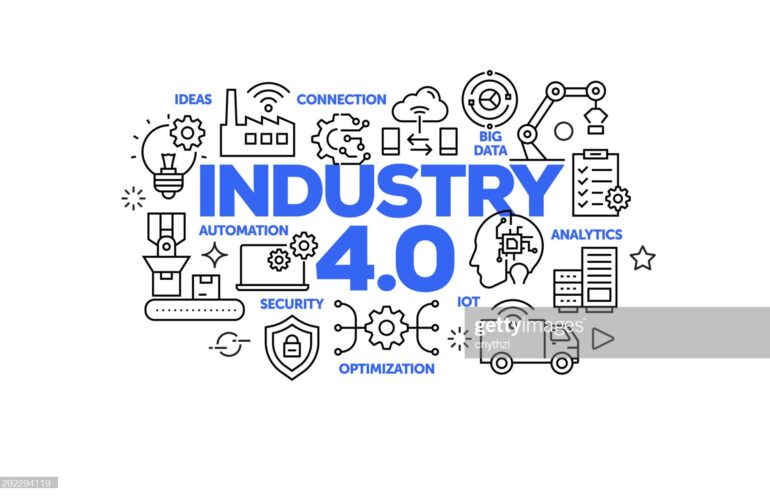Industry 4.0, is the fourth industrial revolution, which is a term used to describe the latest technology in manufacturing. It involves the integration of digital technologies into the manufacturing process, which can help improve efficiency, reduce costs, and increase flexibility. We will discuss some of the latest technologies such as the Internet of Things (IoT) in manufacturing, the benefits and how they are changing the industry.
One of the key technologies driving Industry 4.0 is the Internet of Things (IoT). IoT devices can be used to monitor and control machines and equipment, track inventory, and collect data on the manufacturing process. This data can then be analyzed to identify inefficiencies and opportunities for improvement. IoT also enables real-time communication between machines and humans, which can improve collaboration and decision-making.
Another important technology in Industry 4.0 is automation. Robotics and artificial intelligence (AI) are being used to automate tasks such as assembly, quality control, and material handling. This can help reduce labor costs and improve product quality and consistency.
3D printing is another technology that is transforming the manufacturing industry. 3D printing enables manufacturers to create complex and customized parts on demand, which can help reduce lead times and improve product quality. 3D printing can also reduce waste by producing parts only as needed, rather than in large quantities.
There are many benefits to using IoT in Industry 4.0. For example, IoT can be used to:
- Improve efficiency: By collecting and analyzing data in real time, IoT can help manufacturers identify and fix problems before they cause downtime. This can lead to significant cost savings.
- Increase productivity: IoT can help manufacturers automate tasks that are currently done manually. This can free up workers to focus on more strategic tasks, which can lead to increased productivity.
- Improve quality control: IoT can help manufacturers track the quality of their products at every stage of the manufacturing process. This can help them identify and fix problems early on, which can lead to a better quality product.
- Improve customer service: IoT can help manufacturers collect data about their customers’ needs and preferences. This data can be used to improve the customer experience, which can lead to increased sales and loyalty.
Big data and analytics are also playing a significant role in Industry 4.0. The vast amounts of data generated by IoT devices and other sources can be analyzed to identify patterns and insights that can help optimize the manufacturing process. For example, data analytics can be used to predict machine failures and schedule preventative maintenance, reducing downtime and increasing productivity.
Augmented and virtual reality are being used in manufacturing to improve training, quality control, and collaboration. AR and VR can provide immersive training experiences for employees, allowing them to learn how to operate machines and equipment in a safe and controlled environment. AR and VR can also be used to visualize and inspect products in 3D, improving quality control and identifying potential issues before they become problems.
Here are some specific examples of how IoT is being used in Industry 4.0:
- In the automotive industry, IoT is being used to monitor the performance of vehicles and to predict when maintenance is needed. This can help to reduce downtime and improve the safety of vehicles.
- In the healthcare industry, IoT is being used to monitor patients’ health and to provide remote care. This can help to improve patient outcomes and to reduce costs.
- In the manufacturing industry, IoT is being used to automate production lines and to improve quality control. This can help to increase productivity and to reduce costs.
Industry 4.0 is bringing about significant changes in the manufacturing industry. Technologies such as IoT, automation, 3D printing, big data, and AR/VR are helping companies improve efficiency, reduce costs, and increase flexibility. As these technologies continue to evolve and become more widespread, they will likely play an increasingly important role in shaping the future of manufacturing. Please contact us to learn more about Industry 4.0 solutions we offer to help your company / manufacturing process.







